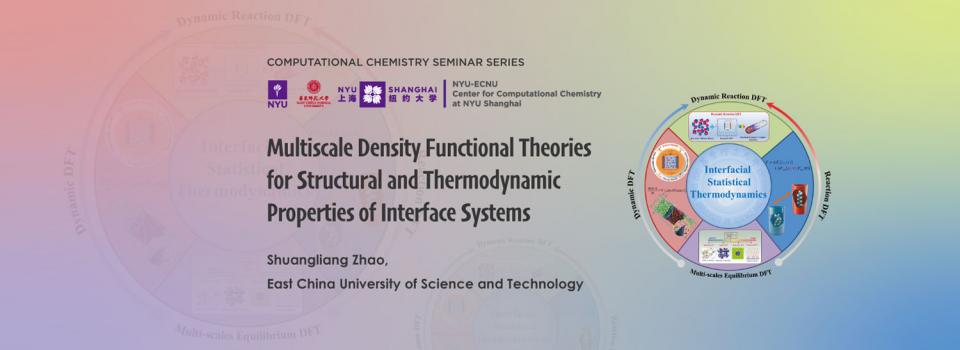
Abstract:
Interfacial regulation plays a pivotal role in the design and development of modern chemical engineering processes such as membrane separation and energy storage etc. Whereas the structure-property relationship lays the cornerstone for quantitative interfacial regulation, it’s challenging to determine the structural and thermodynamic properties of interface systems, as the interfacial zone is typically of nanoscale and both concentration and density sharply change in space owing to the strong external potential from the substrates. To tackle this problem, a few efficient statistical mechanics approaches have been developed in recent decades, among which density functional theories (DFTs) naturally provide a generic framework of structure-property relation by expressing the global thermodynamic properties as a functional of local density distribution subject to the external potential. In this talk, we will present the recent applications of multiscale DFTs into several typical interface systems from our research group. Especially, the combination of quantum DFTs and classical DFTs will be illustrated. We demonstrate, by comparing our theoretical predictions with the corresponding experimental measurements, that DFTs provides a quantitative and promising method for the design, construction, and regulation of novel chemical engineering processes.
Biography:
Shuangliang Zhao received his Ph.D. degree in physical chemistry from the Ecole Normale Superieure de Lyon (France) in 2007. Afterwards, he worked as a postdoc in Paris and then in California, USA. In 2012, Zhao joined the East China University of Science and Technology (ECUST) in Shanghai, and was promoted to be full professor in 2017. Meanwhile he became the deputy dean of the school of chemical engineering in 2016 and then the founding dean of ECUST Elite engineering school in 2019. His research group works on the modeling and computation for interface systems, and particularly he combines classical and quantum statistical mechanics theories to study the structural, thermodynamic properties and molecular diffusion at nanoscale interfaces. He has published over 100 peer-reviewed research articles, and received a number of professional awards and honors including the Shanghai Rising Star Award (2014) and Fok Ying-Tong Education Foundation in China (2016).
Bi-Weekly Seminar Series by the NYU-ECNU Center for Computational Chemistry at NYU Shanghai


